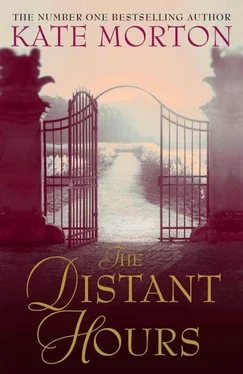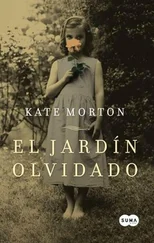The Books and the Birds
The castle gates were locked and far too high to scale, not that I’d have rated my chances had they been lower. I’ve never been one for sports or physical challenges, and with the arrival of that missing memory my legs had turned, most unhelpfully, to jelly. I felt strangely disconnected and uncertain and, after a time, there was nothing for it but to go back to the car and sit for a while, wondering how best to proceed. In the end, my choices were limited. I felt far too distracted to drive, certainly anywhere as far as London, so I started up the car and proceeded at a crawl into Milderhurst village.
On first glimpse it was like all the other villages I’d driven through that day: a single road through the centre with a green at one end, a church beside it, and a school along the way. I parked in front of the local church hall and I could almost see the lines of weary London schoolchildren, grubby and uncertain after their interminable train ride. A ghostly imprint of Mum long ago, before she was my mum, before she was much of anything, filing helplessly towards the unknown.
I drifted along the High Street, trying – without much success – to tame my flyaway thoughts. Mum had been back to Milderhurst, all right, and I had been with her. We’d stood at those gates and she’d become upset. I remembered it. It had happened. But as surely as one answer had been found, a host of new questions had broken free, fluttering about my mind like so many dusty moths seeking the light. Why had we come and why had she wept? What had she meant when she told me she’d made a mistake, that it was too late? And why had she lied to me, just three months before, when she’d told me that Juniper Blythe’s letter mean nothing?
Round and round the questions flew, until finally I found myself standing at the open door of a bookshop. It’s natural in times of great perplexity, I think, to seek out the familiar, and the high shelves and long rows of neatly lined-up spines were immensely reassuring. Amid the smell of ink and binding, the dusty motes in beams of strained sunlight, the embrace of warm, tranquil air, I felt that I could breathe more easily. I was aware of my pulse slowing to its regular pace and my thoughts stilling their wings. It was dim, which was all the better, and I picked out favourite authors and titles like a teacher taking roll-call. Brontë – present; Dickens – accounted for; Shelley – a number of lovely editions. No need to slide them out of place; just to know that they were there was enough, to brush them lightly with my fingertips.
I wandered and noted, reshelved occasionally when books were out of place, and eventually I came upon a clearing at the back of the shop. There was a table set up at the centre with a special display labelled Local Stories . Crowded together were histories, coffee-table tomes, and books by local authors: Tales of Mystery, Murder and Mayhem , Adventures of the Hawkhurst Smugglers , A History of Hop Farming . In the middle, propped on a wooden stand, was a title I knew: The True History of the Mud Man .
I gasped and picked it up to cradle.
‘You like that one?’ The shop assistant had appeared from nowhere, hovering nearby as she folded her dusting cloth.
‘Oh, yes,’ I said reverently. ‘Of course. Who doesn’t?’
The first time I encountered The True History of the Mud Man I was ten years old and home from school, sick. It was the mumps, I think, one of those childhood illnesses that keep you isolated for weeks, and I must’ve been getting whiney and unbearable because Mum’s sympathetic smile had tightened to a stoical crease. One day, after ducking out for a brief reprieve on the High Street, she’d returned with renewed optimism and pressed a tattered library book into my hands.
‘Perhaps this will cheer you up,’ she’d said tentatively. ‘It’s for slightly older readers, I think, but you’re a clever girl; with a bit of effort I’m sure you’ll be fine. It’s rather long compared with what you’re used to, but do persevere.’
I probably coughed self-pityingly in response, little aware that I was about to cross a tremendous threshold beyond which there would be no return; that in my hands I held an object whose simple appearance belied its profound power. All true readers have a book, a moment, like the one I describe, and when Mum offered me that much-read library copy mine was upon me. For although I didn’t know it then, after falling deep inside the world of the Mud Man, real life was never going to be able to compete with fiction again. I’ve been grateful to Miss Perry ever since, for when she handed that novel over the counter and urged my harried mother to pass it on to me, she’d either confused me with a much older child or else she’d glimpsed deep inside my soul and perceived a hole that needed filling. I’ve always chosen to believe the latter. After all, it’s the librarian’s sworn purpose to bring books together with their one true reader.
I opened that yellowing cover and, from the first chapter, the one describing the Mud Man’s awakening in the sleek, black moat, the awful moment in which his heart begins to kick, I was hooked. My nerves thrilled, my skin flushed, my fingers quivered with keenness to turn page after page, each thinning on the corner where countless other readers had taken the journey before me; I went to grand and fearsome places, all without leaving the tissue-laden couch in my family’s suburban breakfast room. The Mud Man kept me imprisoned for days: my mother started smiling again, my swollen face subsided, and my future self was forged.
I noted again the handwritten sign – Local Stories – and turned to the beaming shop assistant. ‘Raymond Blythe came from around here?’
‘Oh yes.’ She pushed fine hair behind each ear. ‘He certainly did. Lived and wrote up at Milderhurst Castle; died there too. That’s the grand estate a few miles outside the village.’ Her voice took on a vaguely forlorn note. ‘At least, it was grand once.’
Raymond Blythe. Milderhurst Castle. My heart had started to hammer pretty hard by now. ‘I don’t suppose he had a daughter?’
‘Three of them, actually.’
‘One called Juniper?’
‘That’s right; she’s the youngest.’
I thought of my mum, her memory of the seventeen-year-old girl who’d charged the air as she entered the village hall, who’d rescued her from the evacuee line, who’d sent a letter in 1941 that made Mum cry when it arrived, fifty years later. And I felt the sudden need to lean on something firm.
‘All three of them are still alive up there,’ the shop assistant continued. ‘Something in the castle water, my mother always says; they’re hale and hearty for the most part. Excepting your Juniper, of course.’
‘Why, what’s wrong with her?’
‘Dementia. I believe it’s in the family. A sad story – they say she was quite a beauty once, and very bright with it, a writer of great promise, but her fiancé abandoned her back in the war and she was never the same again. Went soft in the head; kept waiting for him to come back, but he never did.’
I opened my mouth to ask where the fiancé had gone, but she was on a roll and it was evident she’d be taking no questions from the floor.
‘Just as well she had her sisters to look after her – they’re a dying breed, those two; used to be involved in all sorts of charities, way back when – she’d have been packed off to an institution otherwise.’ She checked behind her, making sure we were alone, then leaned closer. ‘I remember when I was a girl, Juniper used to roam the village and the local fields; didn’t bother anyone, nothing like that, just wandered sort of aimlessly. Used to terrify the local kids; but then children like to be scared, don’t they?’
Читать дальше












